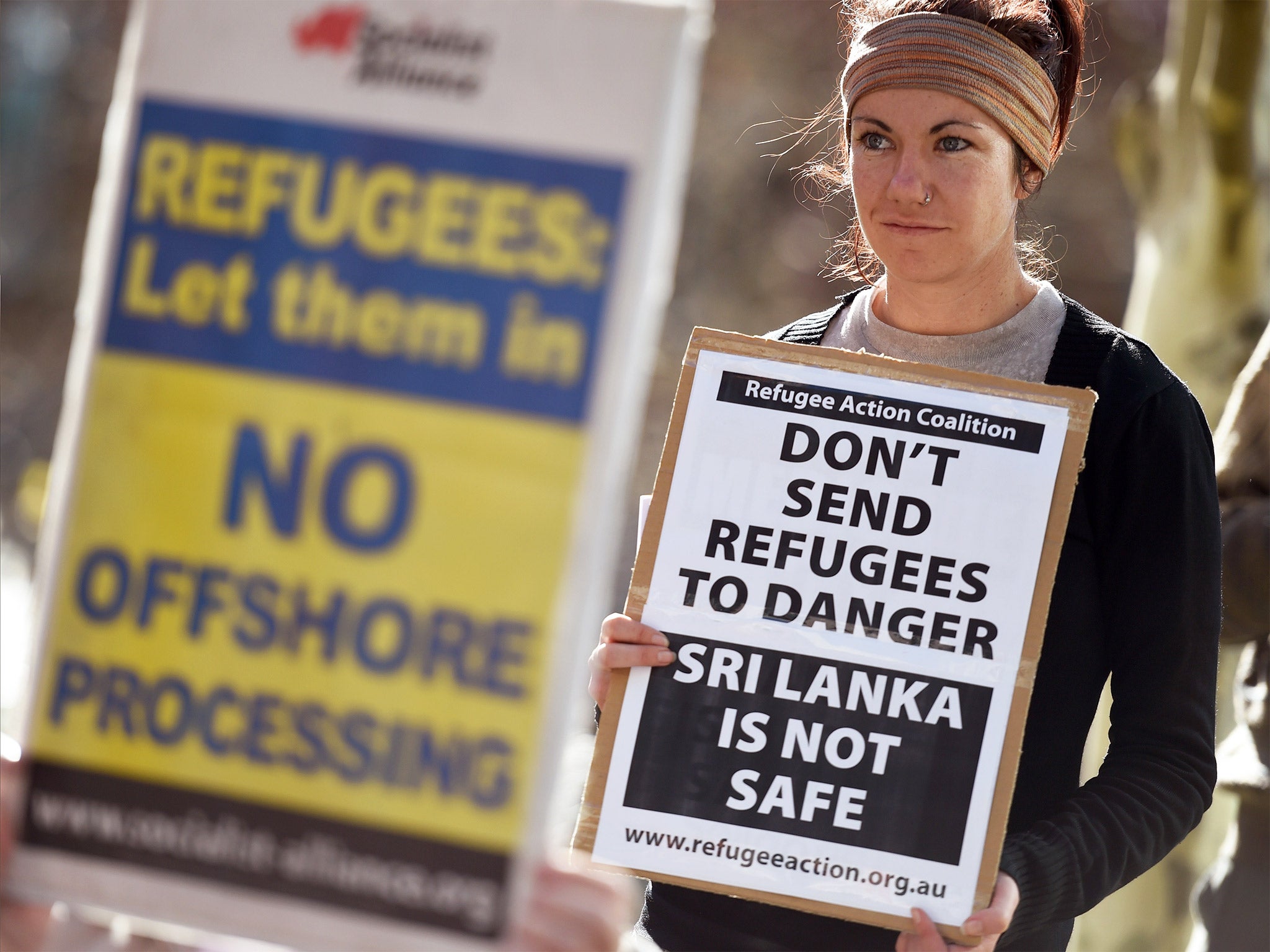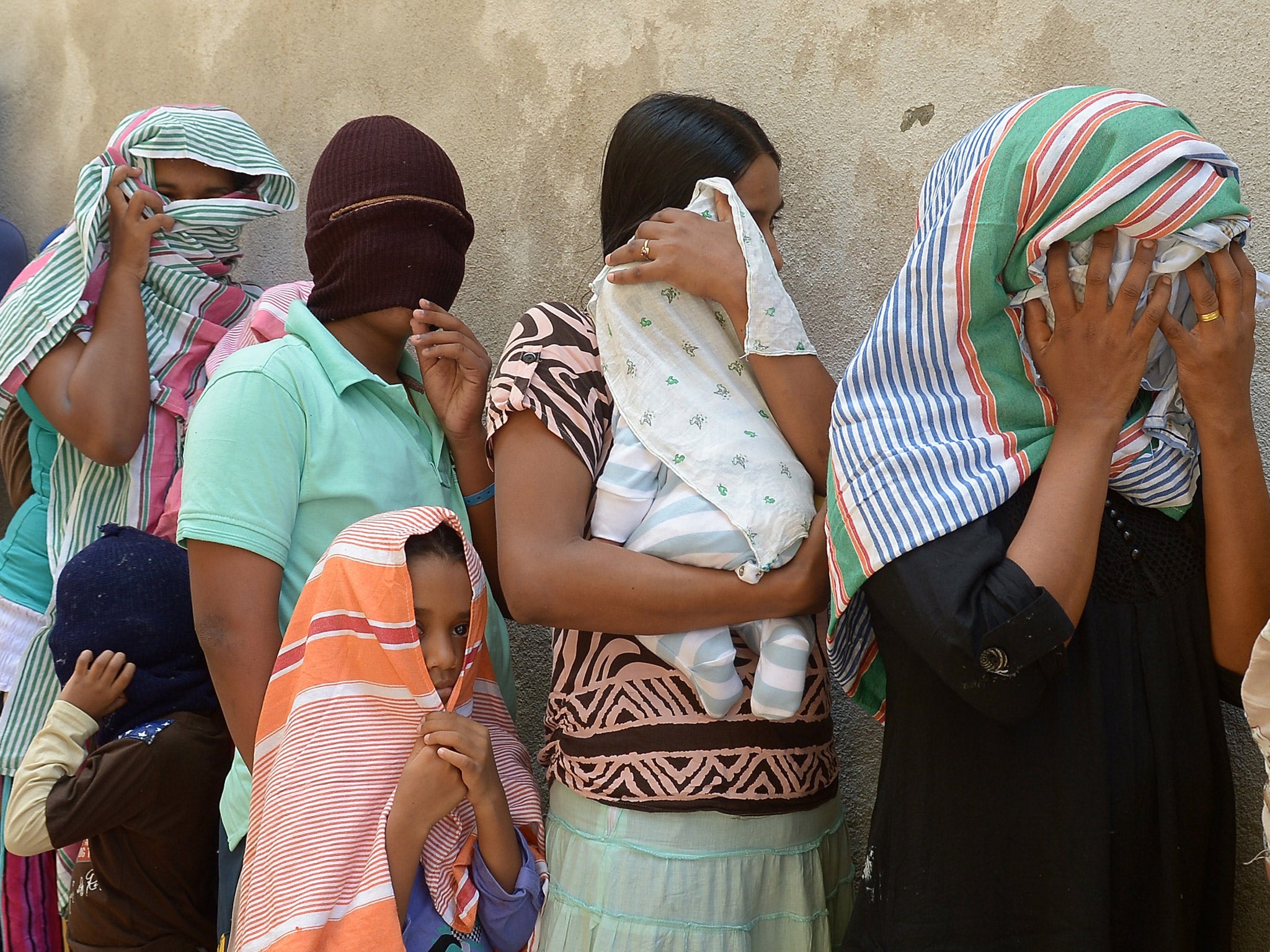The plight of a group of Sri Lankan refugees: At sea for over a month – then locked up in the Outback under Australia’s hardline asylum policies
The 157 people - including 50 children - have become cause célèbre and were finally allowed to land after India agreed to assess them for repatriation

Your support helps us to tell the story
From reproductive rights to climate change to Big Tech, The Independent is on the ground when the story is developing. Whether it's investigating the financials of Elon Musk's pro-Trump PAC or producing our latest documentary, 'The A Word', which shines a light on the American women fighting for reproductive rights, we know how important it is to parse out the facts from the messaging.
At such a critical moment in US history, we need reporters on the ground. Your donation allows us to keep sending journalists to speak to both sides of the story.
The Independent is trusted by Americans across the entire political spectrum. And unlike many other quality news outlets, we choose not to lock Americans out of our reporting and analysis with paywalls. We believe quality journalism should be available to everyone, paid for by those who can afford it.
Your support makes all the difference.For nearly a month, they were held at sea – now 157 asylum-seekers intercepted on their way to Australia are locked up in an Outback detention centre, their future uncertain as lawyers wrangle about this latest challenge to the country’s hardline asylum policies.
The group, believed to be mostly ethnic Tamils from Sri Lanka, set off from India last month, but were picked up by an Australian customs vessel.
Human rights lawyers in Australia launched a High Court case to prevent them being returned home, which was the fate of a previous boatload of Sri Lankans handed over to India’s navy mid-ocean earlier this month.
With Tony Abbott’s government set against “boat people” setting foot on Australian shores, the group – which includes 50 children – found itself in limbo. It was only after India agreed to assess them, with a view to repatriating them, that they were flown to Australia earlier this week to the remote Curtin Detention Centre, in Western Australia.
As Indian consular officials today continued preparations to travel to Curtin, the High Court agreed to hear a compensation claim for false imprisonment by lawyers for some of the group. The would-be refugees were held in windowless rooms, allowed out only for meals and about three hours of daylight daily, according to court documents.
Australian Immigration Minister, Scott Morrison, told media they were economic migrants. “A very large number of people… had been resident in India for a very long time,” he said, adding: “They haven’t come from Sri Lanka.”

India has agreed to take back any of its nationals, and to consider taking Sri Lankans who were resident there.
It was only because of the High Court action that information about events reached the Australian public. The Australian government has shrouded its anti-“people smuggling” operations in increasing secrecy, while boasting that no boat people have reached Australia since December. This latest group was allowed in only to facilitate India’s task.
It has also emerged that during Mr Morrison’s talks with Indian ministers last week, he presented them with bats signed by Australian cricketing greats Brett Lee and Glenn McGrath. The pair, who are both retired, were then lambasted on social media.
Lee’s manager said today that he had no idea the bats would be used for that purpose. Lee himself tweeted: “I am a strong supporter of human rights and for me to be positioned as otherwise because I signed a cricket bat is totally wrong.”
Mr Morrison rubbished the idea that the asylum-seekers were fleeing persecution. “I’d be surprised if anyone was seriously suggesting that people were being persecuted in India by the Indian government,” he said.
Hugh de Kretser, a lawyer for the asylum-seekers, denied they were economic migrants, saying they had all claimed refugee protection. Another lawyer, George Newhouse, said it was impossible to assess those claims as lawyers had been given “very little to no access to our clients”.
Join our commenting forum
Join thought-provoking conversations, follow other Independent readers and see their replies
Comments